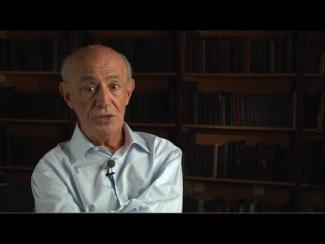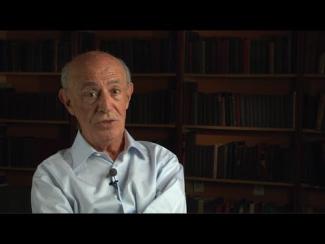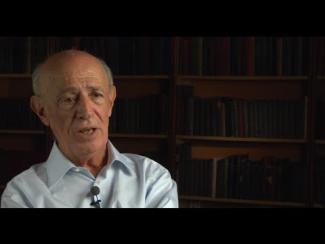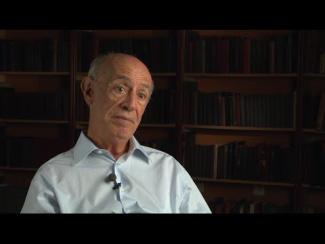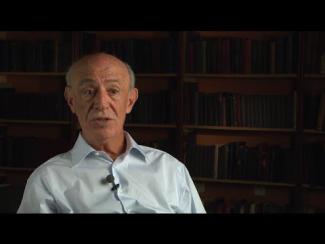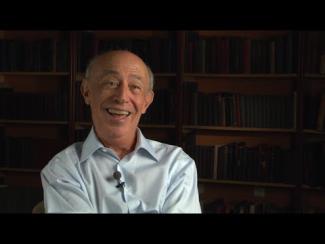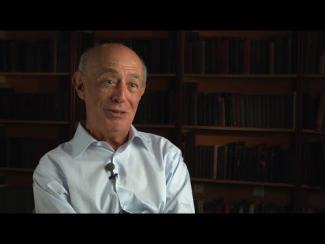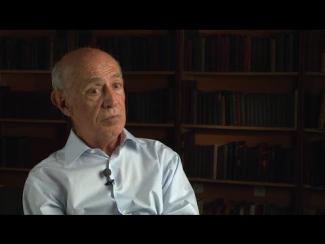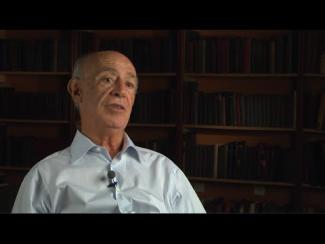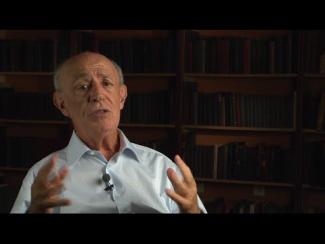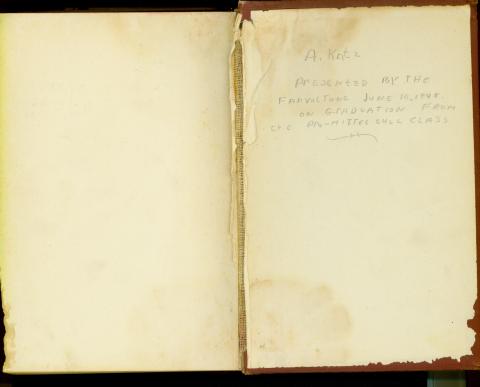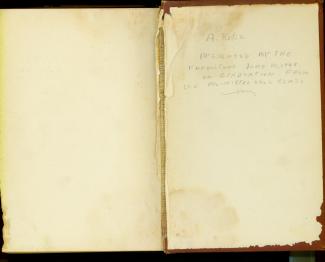The Yiddish Book Center's
Wexler Oral History Project
A growing collection of in-depth interviews with people of all ages and backgrounds, whose stories about the legacy and changing nature of Yiddish language and culture offer a rich and complex chronicle of Jewish identity.
Allen Katz's Oral History
Allen Katz, retired engineer and former student at the Yiddish Folkshul in the Wynnefield neighborhood of Philadelphia, was interviewed by Dorothy Goldstone on August 7, 2013 at the Yiddish Book Center in Amherst, Massachusetts. Allen's mother's family was from Ukraine and his father's family was from Romania. Allen learned "shtetl Yiddish" from his grandmother who lived with them, and more sophisticated Yiddish from the folkshul (Yiddish secular school) run by the Arbeter Ring in Wynnefield, Philadelphia. There, they read the great Yiddish writers' works, learned about Jewish history, recited poetry, and sang songs in Yiddish. Allen recites two Yiddish poems and the "Partizaner lid" (Partisan Song). He recalls the impact of learning about the pogroms from his grandmother and the Holocaust from his shul teachers. Allen is named after two of his mother's brothers who were lined up and shot by a Cossack, who joked to a companion that he could kill two Jews with one shot. He reminisces about the Holocaust survivor scholars who came to teach at his shul whose dedicated students in Eastern Europe had all been murdered. It was difficult for them to relate to the more casual, Americanized students in the shul in Philadelphia. Wynnefield was almost entirely comprised of Jewish families. Allen's father worked in a candy factory, and there was very little money. He remembers drinking soda out of sour cream jars and tea out of yahrzeit (anniversary of death) glasses. The family's "Jewishness" related to culture more than religion, in part because they couldn't afford to join a synagogue. He remembers carp swimming in the bathtub prior to his mother making gefilte fish and unhatched eggs found in slaughtered chickens. He also recalls eating bacon for the first time in the Army. Allen tells anecdotes about encounters in adulthood with people who grew up more privileged. His family could not afford to send him away to college, so he attended Drexel Institute of Technology, where he pursued an engineering degree. He eventually went into business for himself as a manufacturer's representative selling instruments for satellites and military vehicles; he did well financially, especially during the Reagan years. Allen and his wife have three children and five grandchildren. All three children went to Hebrew school and were bar or bat mitzvah-ed; two are still quite involved in the Jewish world. His older son is battling leukemia and Allen becomes emotional talking about him. Allen and his wife have retired to Florida and started a whole new life there. She works as a docent at The Florida Holocaust Museum, and they joined a synagogue, mainly for social reasons. He talks about how he maintains his connection to Yiddish by reading Pakn Treger and listening to Yiddish CDs. He ends the interview talking about the persistence of antisemitism in this country and the insecurity and anxiety that it engenders. He and his wife tried to instill good values, based on Jewish traditions, in their children. He hopes that generations of the future will remember their heritage and the rich culture of their ancestors.
This interview was conducted in English.
Allen Katz was born in Philadelphia, Pennsylvania in 1935.

